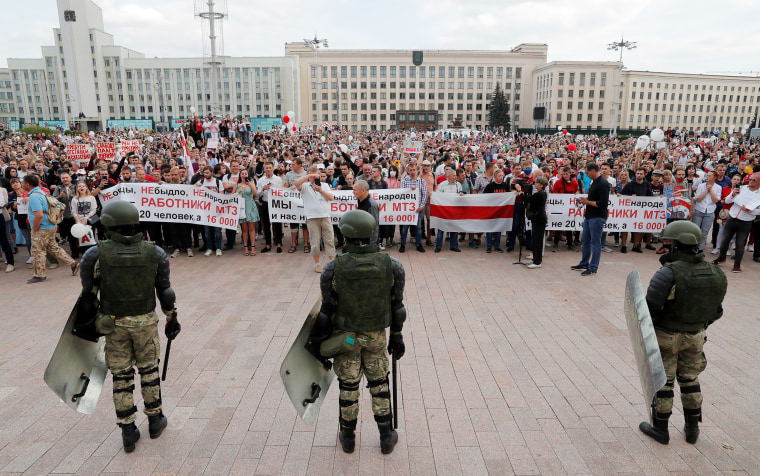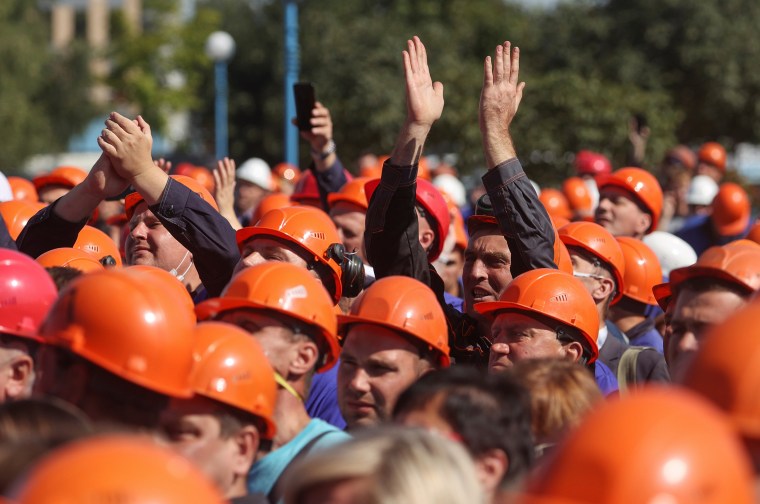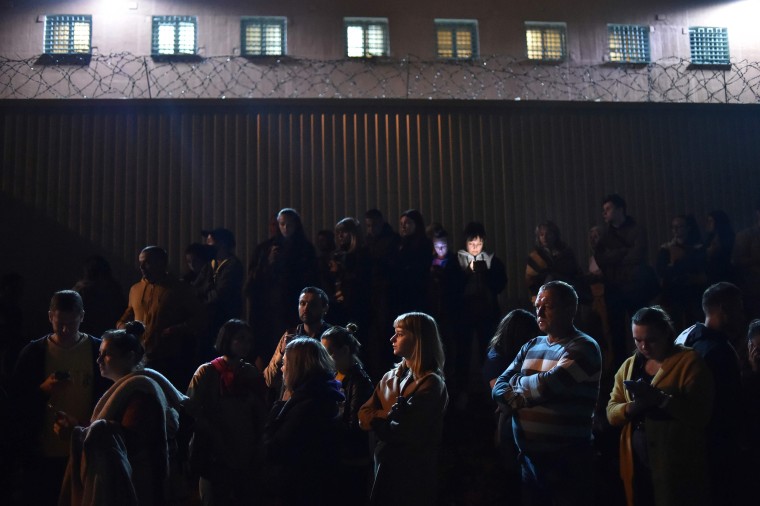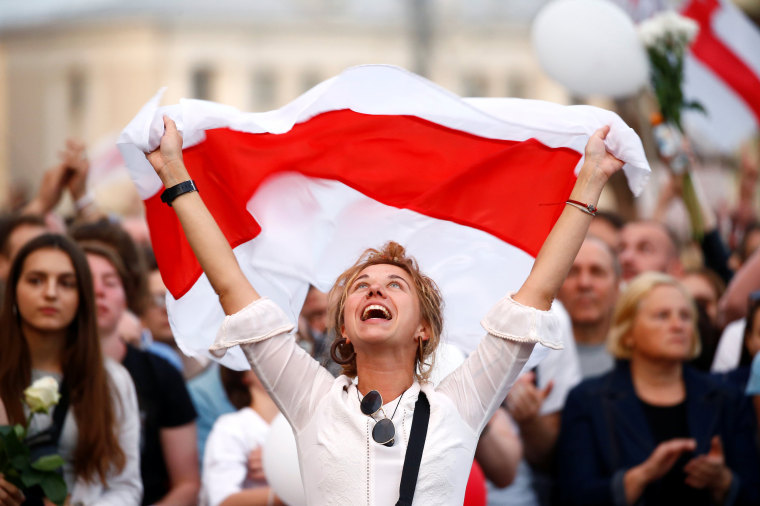MOSCOW — They were undaunted by reports of torture, live ammunition and the threat of arrest.
Tens of thousands of factory workers, women clutching white flowers and balloons and young protesters flooded the streets of cities across Belarus, including Minsk, the capital, for the fifth straight day on Friday.
“Resign,” they shouted, their chants aimed at longtime President Alexander Lukashenko, who is facing his biggest challenge since taking power 26 years ago after the fall of the Soviet Union. He is known as Europe's "last dictator."
Demonstrations erupted Sunday night as polls closed in the Belarusian presidential election when Lukashenko moved to declare victory with 80 percent of the vote over opposition leader Svetlana Tikhanovskaya.
Workers at state-owned manufacturing enterprises began to join the protest on Thursday and labor strikes calling for Lukashenko to step down began to spread across the country, despite reports of mass arrests and beatings by security forces. At least one demonstrator was killed.
They were joined by thousands of female protesters forming “solidarity chains” and many wearing white T-shirts, ribbons and bracelets, to represent peace, although others featured a red stripe, echoing the old Belarusian flag.
As the crowd in Minsk converged on the Parliament building on Independence Square, at least two helmeted security officers lowered their riot shields, prompting women to run forward to hug them and offer flowers.

Seemingly emboldened by the groundswell of support, Tikhanovskaya — who fled to neighboring Lithuania on Monday after saying her family was threatened — resurfaced on Friday.
Calling for an end to the violence, for mayors across the country to join the protesters and for the state to enter into a dialogue, Tikhanovskaya, a former English teacher, said in a video message on YouTube that her countrymen “no longer want to live with the old authorities.”
Tsikhanouskaya, who emerged from obscurity a few weeks ago to take her husband's place in the election campaign after he was jailed, added that “most of the country” did not believe Lukashenko won the election.
“We have always said that we have to defend our election using only legal, nonviolent means, but the authorities have turned the public’s peaceful protests into a bloodbath,” she said. “The situation is critical.”
Download the NBC News app for breaking news and politics
In a separate post on the Telegram messaging app, she called for the creation of a coordinating committee of labor leaders, political figures and opposition candidates to begin working out a peaceful transition of power.
“We are ready for dialogue with the authorities,” the post said. “Taking into account what is taking place across the country, and the need to take urgent measures to restore the rule of law in Belarus, I -- Svetlana Tikhanovskaya -- initiate the creation of a coordinating council to ensure a transfer of power.”
Her comments came as allegations of torture and beating by security forces flooded social media and proliferate online — further exacerbating public anger toward the government.
Pictures posted online and verified by NBC News have also shown detainees at a police station in Minsk strewn out along a courtyard.

Reports from protesters released from detention centers have detailed accounts of torture and humiliation. Other videos and audio clips shared on social media have featured the audible screams of detainees apparently being tortured by the authorities.
In a video shared by the independent outlet Mediazona, Minsk residents stood outside one of these detention centers chanting “hang in there” to those being held inside.
Another video, published on TikTok, showed battered and bruised protesters being treated by medics when released from a detention center Friday.
Authorities in the country — which neighbors Russia, Poland and Ukraine and has a population of around 9.5 million — said Thursday they had arrested around 7,000 people across the country, although they later released about 1,000 people.
Natalya Kochanova, speaker of the upper house of the Belarusian Parliament, said Friday that the release was authorized by Lukashenko after considering the requests of the labor collectives who are now protesting against him. Kochanova added that Lukashenko promised to investigate the facts behind the arrests.
Those released were “under the obligation not to participate in unauthorized activities, and minors were handed over to their parents," Kochanova said. "We don't need unrest. We don't need war."

Lukashenko, 65, who has alleged a foreign-backed plot to destabilize Belarus and dismissed the demonstrators as criminals and the unemployed, later emerged to address state industry workers directly.
“I’m still alive and I haven’t fled abroad as some of our vaunted, ‘informed’ compatriots are drumming up that the president has fled the country and is now abroad,” said Lukashenko, who once ran a Soviet collective farm.
Warning them that their strikes will destroy the Belarusian economy, he added: “Today you don’t produce 10 tractors, they don’t go to the market, and tomorrow the Germans will come with the Americans. The Russians will bring their equipment.”
His words appeared to have little effect, as more and more workers joined the national strike and took to the streets.
Matthew Bodner reported from Moscow and Matthew Mulligan from London.


